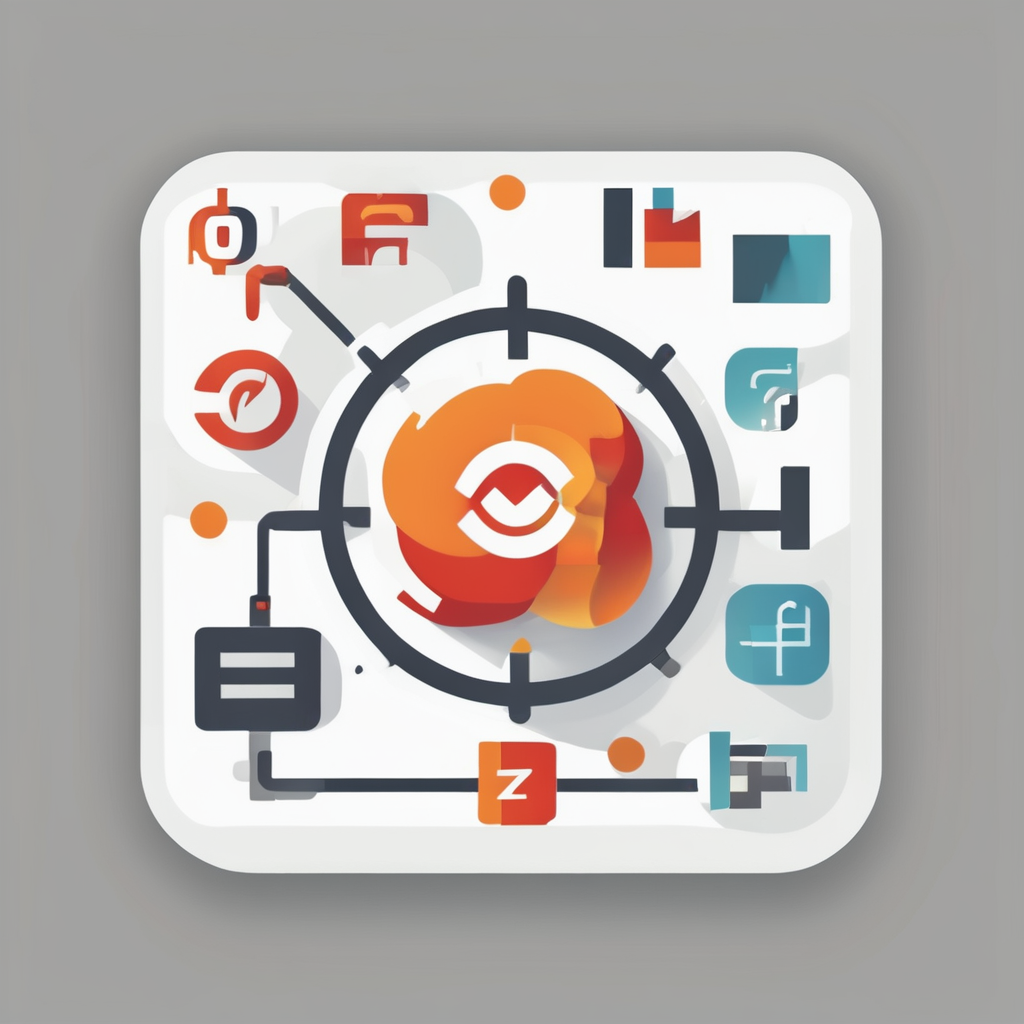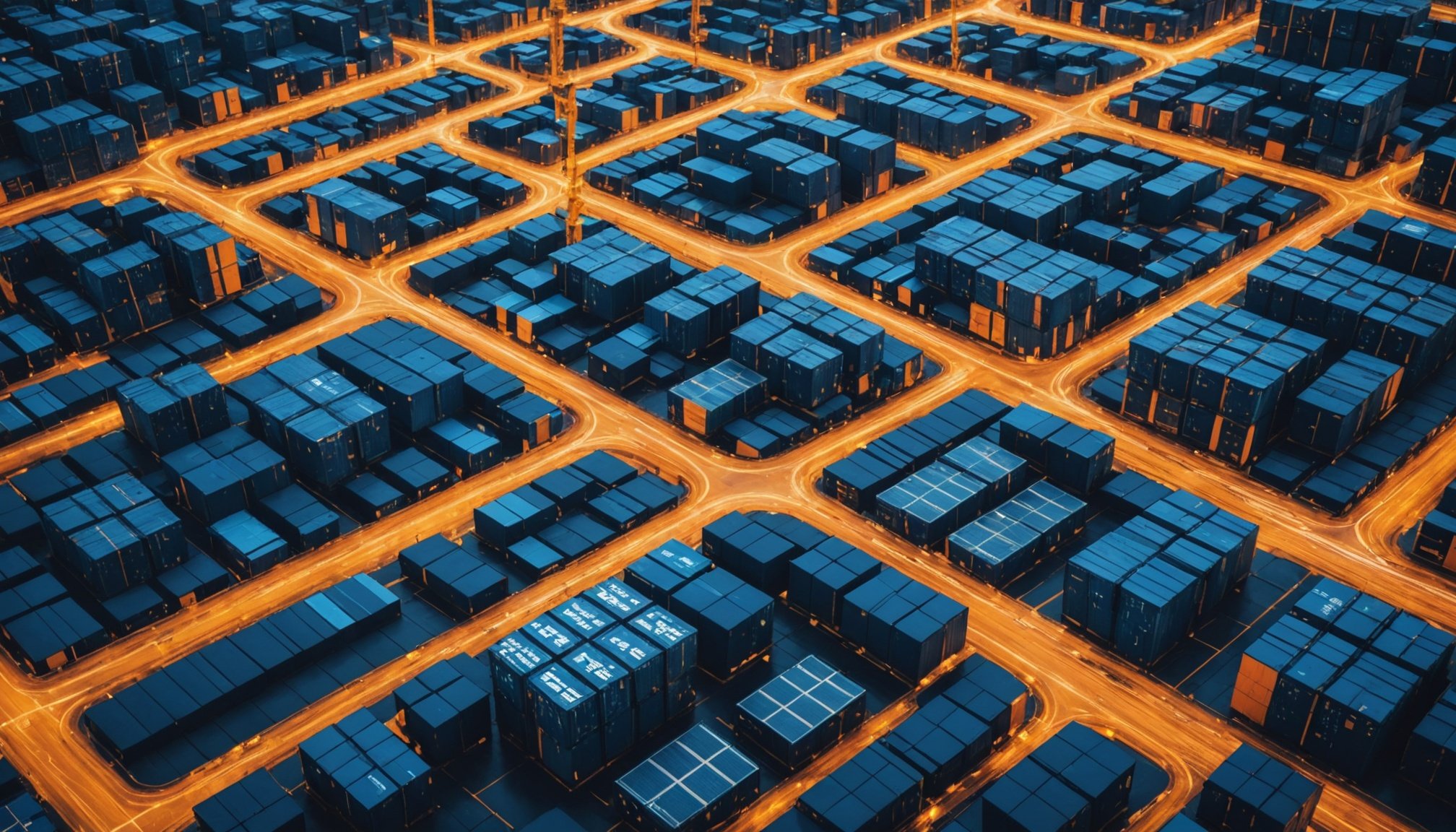Transform Your Supply Chain: Leveraging AI and Blockchain for Superior Security Solutions
In the modern era of global commerce, the supply chain is the backbone of any successful business. However, traditional supply chain systems often face significant challenges such as data silos, inefficiencies, and vulnerabilities to scams. To address these issues, companies are increasingly turning to innovative technologies like artificial intelligence (AI) and blockchain. Here’s how these technologies can revolutionize your supply chain, enhancing security, efficiency, and transparency.
The Role of Blockchain in Supply Chain Security
Blockchain technology is a game-changer when it comes to supply chain security. Here’s why:
In the same genre : Elevate your visuals: utilizing ai to enhance image and video quality in digital media
Elevating Transparency and Security
Transparency is crucial for trust and efficiency across the supply chain. Blockchain technology records every transaction and operation on a decentralized ledger, ensuring data immutability and enabling end-to-end traceability. This provides all participants with real-time, accurate information, fostering trust and accountability across the supply chain[1][3].
For instance, in the pharmaceutical industry, blockchain can be used to track drugs from production to the point of sale. Each batch of drugs is assigned a unique digital ID, which includes details like batch number, manufacturer details, production date, and expiration date. This information is stored in the blockchain, allowing all stakeholders to track the movement of drugs in real time[5].
In the same genre : Revolutionizing document security: a comprehensive guide to implementing blockchain for effective management
Smart Contracts for Compliance and Automation
Smart contracts are another powerful feature of blockchain technology. They automatically enforce and record compliance rules, reducing the need for human intervention and minimizing errors. For example, if a batch of drugs requires a specific expiration date, the blockchain smart contract verifies that the drugs remain within their allowable usage date throughout transit. If the batch approaches or exceeds its expiration date, the smart contract logs the deviation and can automatically block further movement of the expired batch[5].
The Power of Artificial Intelligence in Supply Chain Management
AI is transforming supply chain management by enhancing efficiency, optimizing operations, and mitigating risks.
Optimizing Efficiency and Risk Mitigation
AI-driven machine learning algorithms analyze real-time data to improve forecasting and decision-making. For instance, SmartMatrix, a platform that integrates blockchain and AI, evaluates logistics and inventory data to anticipate market demand, optimize inventory levels, and prevent losses from overstocking or shortages. This not only boosts operational efficiency but also strengthens the overall resilience of the supply chain[1][3].
Predictive Analytics and Threat Detection
AI systems continuously monitor supply chains in real-time, spotting anomalies and potential threats before they materialize. Predictive analytics play a crucial role in assessing risks by analyzing large datasets to forecast potential vulnerabilities. This allows businesses to preemptively address issues that could disrupt operations, saving time and resources in the long run[2][4].
Here are some key benefits of AI in supply chain security:
- Predictive Analytics: AI systems predict security risks by analyzing past data to forecast future supply chain disruptions.
- Threat Detection: AI continuously monitors supply chains to detect anomalies and potential threats.
- Automated Responses: Once a threat is detected, AI systems can automatically initiate protocols to mitigate risks, such as alerting security teams or temporarily altering supply routes[2][4].
Synergizing AI and Blockchain for Enhanced Security
The integration of AI and blockchain technologies creates a formidable defense against cyber threats and data breaches.
Comprehensive Security Framework
By combining the transparency of blockchain with the predictive capabilities of AI, businesses can develop a robust security framework. Here’s how it works:
- Data Integrity: Blockchain ensures that data remains accurate and reliable by maintaining a tamper-proof ledger.
- Real-Time Monitoring: AI systems continuously monitor the supply chain for anomalies and potential threats.
- Automated Responses: Smart contracts and AI-driven systems can automatically enforce security measures and respond to threats in real time[1][2][4].
Industry-Specific Applications
The integration of AI and blockchain is transforming various industries in unique ways.
Pharmaceutical Supply Chains
In the pharmaceutical industry, blockchain enhances supply chain visibility by creating a transparent, secure ledger that records each transaction or transfer of drugs in real time. IoT sensors attached to pharmaceuticals continuously monitor critical factors like temperature and humidity, and this data is automatically logged on the blockchain. Smart contracts enforce quality control standards by monitoring real-time data and taking automated action if parameters are breached[5].
Retail and Logistics
In retail and logistics, AI-powered solutions streamline supply chain processes, allowing for precise tracking and real-time data analysis. Blockchain applications ensure the integrity and security of transactions, simplifying international freight operations by providing tamper-proof records. For example, a major retailer implemented blockchain to track products across its supply chain, resulting in a 30% reduction in record discrepancies and a 50% faster resolution of disputes[2].
Practical Insights and Actionable Advice
Here are some practical steps and advice for businesses looking to leverage AI and blockchain for superior security solutions:
Implementing Blockchain Technology
- Start Small: Begin with a pilot project to test the feasibility of blockchain in your supply chain.
- Collaborate with Stakeholders: Ensure all stakeholders are on board and understand the benefits of blockchain.
- Use Smart Contracts: Automate compliance and security measures using smart contracts.
Integrating AI Systems
- Analyze Historical Data: Use machine learning algorithms to analyze historical data and predict future disruptions.
- Monitor Real-Time Data: Continuously monitor supply chain operations in real time to detect anomalies and potential threats.
- Automate Responses: Implement AI-driven systems to automatically respond to detected threats and mitigate risks.
Case Studies and Success Metrics
Several real-world applications have demonstrated the transformative power of integrating AI and blockchain into traditional business practices.
Example: SmartMatrix
SmartMatrix, a platform that merges blockchain and AI, has revolutionized supply chain management by delivering unparalleled security, efficiency, and adaptability. By tracing products from origin to consumer, SmartMatrix ensures authenticity and quality, boosting operational trust and consumer confidence in product integrity[1][3].
Example: Pharmaceutical Industry
A pharmaceutical company implemented blockchain to track vaccines across its supply chain. Each batch was assigned a unique digital ID, and IoT sensors monitored critical factors like temperature and humidity. Smart contracts enforced quality control standards, ensuring that vaccines maintained safe conditions throughout distribution. This resulted in enhanced transparency, reduced risks of product spoilage, and improved customer trust[5].
Table: Comparing Traditional Supply Chains with AI and Blockchain-Enhanced Supply Chains
| Feature | Traditional Supply Chains | AI and Blockchain-Enhanced Supply Chains |
|---|---|---|
| Transparency | Limited visibility | Real-time, end-to-end traceability |
| Security | Vulnerable to scams and data breaches | Tamper-proof ledger, automated security measures |
| Efficiency | Manual processes, prone to errors | Automated processes, predictive analytics |
| Risk Mitigation | Reactive approach | Proactive approach with real-time threat detection |
| Data Integrity | Data silos, inaccuracies | Accurate, reliable data through blockchain |
| Customer Satisfaction | Lower due to inefficiencies | Higher due to enhanced transparency and security |
Quotes from Industry Experts
- “The integration of AI and blockchain technologies provides a formidable defense against cyber threats and data breaches, ensuring a secure environment where data is both accurate and accessible.” – [Source: My Data Science Journey][2]
- “By merging the transparency of blockchain with the predictive capabilities of AI, businesses can develop a robust security framework that enhances transparency, boosts efficiency, and mitigates risks.” – [Source: SmartMatrix CryptoChain Ltd][1]
- “Blockchain technology and AI can be integrated to create smart contracts that automatically enforce the desired security measures, providing mechanisms for ensuring that participants in the supply chain comply with the security requirements agreed upon beforehand.” – [Source: XenonStack][4]
In conclusion, leveraging AI and blockchain technologies is a strategic move in transforming your supply chain into a secure, efficient, and transparent operation. By integrating these technologies, businesses can create a robust infrastructure that minimizes vulnerabilities, enhances protection, and boosts customer confidence. As the supply chain landscape continues to evolve, embracing these innovations will be crucial for staying competitive and resilient in the face of modern challenges.
By following the practical insights and actionable advice outlined above, companies can embark on a digital transformation journey that not only enhances their supply chain security but also optimizes operations, improves decision-making, and drives future growth. In the words of an industry expert, “AI and ML are revolutionizing supply chain security as they can detect the most serious threats and manage risks more effectively and automatically than any earlier incident response system.” As you transform your supply chain, remember that the future of secure and efficient operations lies in the synergy of AI and blockchain.











